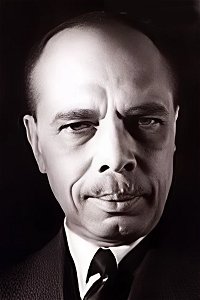Introduction

Born: June 17, 1871, Jacksonville, Florida. Birth name: James William Johnson.
Died: June 26, 1938, Wiscasset, Maine, during a heavy storm, when a train struck his car.
Buried: Green-Wood Cemetery, Brooklyn, New York.

Born: June 17, 1871, Jacksonville, Florida. Birth name: James William Johnson.
Died: June 26, 1938, Wiscasset, Maine, during a heavy storm, when a train struck his car.
Buried: Green-Wood Cemetery, Brooklyn, New York.
James was the son of James Johnson and Helen Louise Dillet, husband of Grace Nail, and brother of composer John Johnson.
He studied literature at Atlanta University (graduated 1894, MA 1904), and went on to become a song writer, anthologist, teacher, and lawyer. He was the first African-American to pass the bar in the state of Florida.
In 1906 he became the American consul in Puerto Cabello, Venezuela, and in 1909, consul in Corinto, Nicaragua.
In 1920, he was appointed Executive Secretary of the National Association for the Advancement of Colored People.
O brothers mine, today we stand
Where half a century sweeps our ken,
Since God, through Lincoln’s ready hand,
Struck off our bonds and made us men.
Just fifty years—a winter’s day—
As runs the history of a race;
Yet, as we look back o’er the way,
How distant seems our starting place!
Look farther back! Three centuries!
To where a naked, shivering score,
Snatched from their haunts across the seas,
Stood, wild-eyed, on Virginia’s shore.
Far, far the way that we have trod,
From heathen kraals and jungle dens,
To freedmen, freemen, sons of God,
Americans and Citizens.
A part of His unknown design,
We’ve lived within a mighty age;
And we have helped to write a line
On history’s most wondrous page.
A few black bondmen strewn along
The borders of our eastern coast,
Now grown a race, ten million strong,
An upward, onward marching host.
Then let us here erect a stone,
To mark the place, to mark the time;
A witness to God’s mercies shown,
A pledge to hold this day sublime.
And let that stone an altar be,
Whereon thanksgivings we may lay,
Where we, in deep humility,
For faith and strength renewed may pray.
With open hearts ask from above
New zeal, new courage and new pow’rs,
That we may grow more worthy of
This country and this land of ours.
For never let the thought arise
That we are here on sufferance bare;
Outcasts, asylumed ’neath these skies,
And aliens without part or share.
This land is ours by right of birth,
This land is ours by right of toil;
We helped to turn its virgin earth,
Our sweat is in its fruitful soil.
Where once the tangled forest stood—
Where flourished once rank weed and thorn—
Behold the path-traced, peaceful wood,
The cotton white, the yellow corn.
To gain these fruits that have been earned,
To hold these fields that have been won,
Our arms have strained, our backs have burned,
Bent bare beneath a ruthless sun.
That Banner which is now the type
Of victory on field and flood—
Remember, its first crimson stripe
Was dyed by Attucks’ willing blood.
And never yet has come the cry—
When that fair flag has been assailed—
For men to do, for men to die,
That have we faltered or have failed.
We’ve helped to bear it, rent and torn,
Through many a hot-breath’d battle breeze;
Held in our hands, it has been borne
And planted far across the seas.
And never yet—O haughty Land,
Let us, at least, for this be praised—
Has one black, treason-guided hand
Ever against that flag been raised.
Then should we speak but servile words,
Or shall we hang our heads in shame?
Stand back of new-come foreign hordes,
And fear our heritage to claim?
No! stand erect and without fear,
And for our foes let this suffice—
We’ve bought a rightful sonship here,
And we have more than paid the price.
And yet, my brothers, well I know
The tethered feet, the pinioned wings,
The spirit bowed beneath the blow,
The heart grown faint from wounds and stings;
The staggering force of brutish might,
That strikes and leaves us stunned and dazed;
The long, vain waiting through the night
To hear some voice for justice raised.
Full well I know the hour when hope
Sinks dead, and ’round us everywhere
Hangs stifling darkness, and we grope
With hands uplifted in despair.
Courage! Look out, beyond, and see
The far horizon’s beckoning span!
Faith in your God-known destiny!
We are a part of some great plan.
Because the tongues of Garrison
And Phillips now are cold in death,
Think you their work can be undone?
Or quenched the fires lit by their breath?
Think you that John Brown’s spirit stops?
That Lovejoy was but idly slain?
Or do you think those precious drops
From Lincoln’s heart were shed in vain?
That for which millions prayed and sighed,
That for which tens of thousands fought,
For which so many freely died,
God cannot let it come to naught.
James Weldon Johnson
Fifty Years & Other Poems, 1917